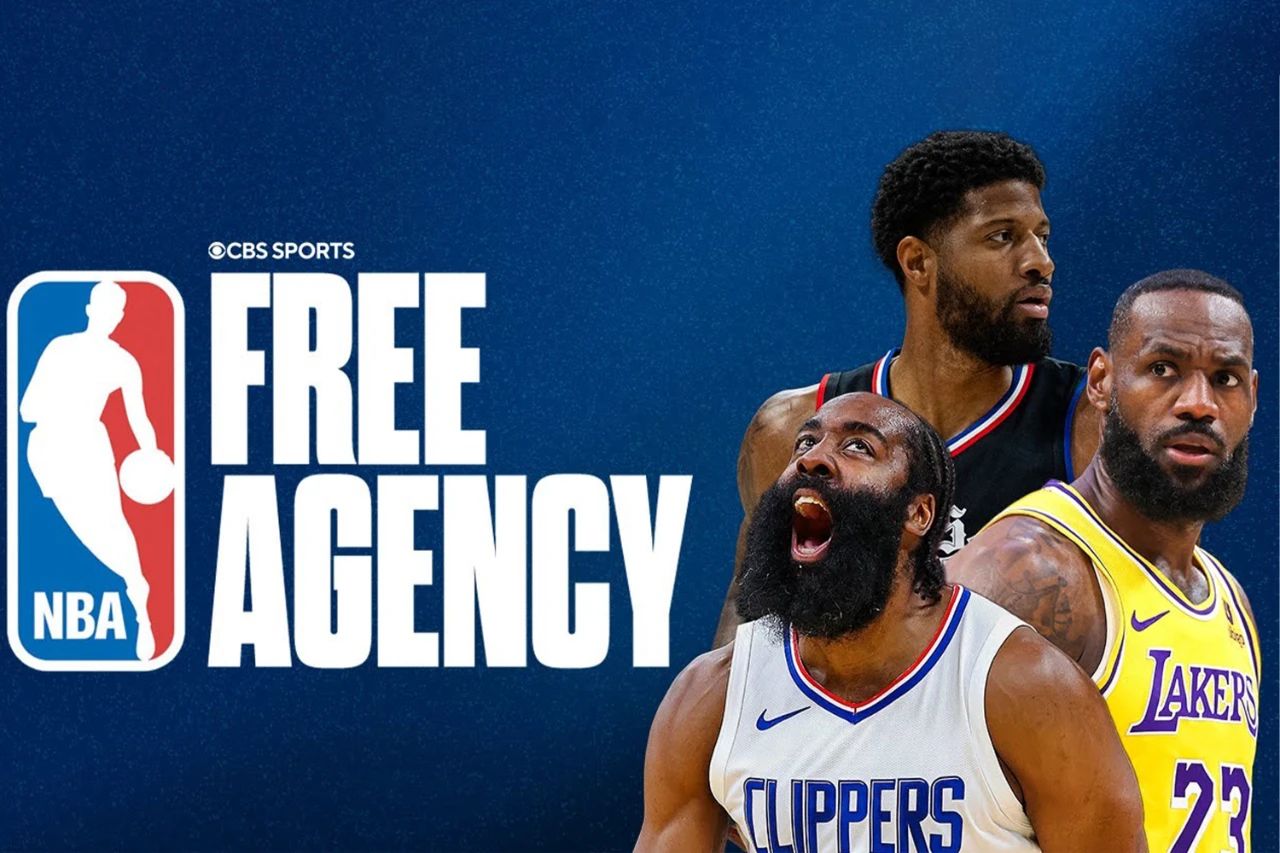The NBA has around 150 free agents this year, accounting for roughly one-third of all players. Despite rule changes for re-signing team-owned free agents, aging stars with long careers don’t seem as coveted, and teams haven’t rushed to act.
Under the new rules, from the moment the Finals end to midnight on June 30, teams can approach their own free agents early for pre-signings. So far, only three free agents have secured early deals: Pascal Siakam of the Pacers, Kings’ sixth man Malik Monk, and Gary Payton II of the Warriors. Payton exercised his $9.1 million player option without hesitation.
The biggest names include LeBron James, followed by DeMar DeRozan, Paul George, Miles Bridges, D’Angelo Russell, Klay Thompson, Tobias Harris, Immanuel Quickley, and James Harden, ranked by last season’s scoring.
For unrestricted free agents, if teams don’t act now, they can negotiate starting July 1. In other words, if everyone waits until July 1, the new pre-signing window becomes meaningless.
It’s not entirely true that veteran players are ignored. If a star has clout, experience, and remaining dominance, they’ll attract bids. Valuable veteran free agents still hold leverage—take LeBron and George, who may wait until July 1 to maximize their interests, even though the NBA grants hometown teams an early re-signing advantage.
But such game-changing stars are rare; most veterans serve as role players. This reflects a reality: the NBA is in a generational shift, with the Celtics’ championship underscoring that new-era stars now dominate.
The few players who can truly alter a team’s title odds are LeBron, DeRozan, George, Siakam (who just signed a 4-year, $189.5M extension with Indiana), and maybe Thompson. LeBron will likely stay with the Lakers, putting George and DeRozan in the spotlight.
With most playoff teams retaining core rosters, there’s little incentive for drastic overhauls, limiting free agents’ options. The 76ers have the most cap flexibility (theoretically only Joel Embiid is under contract), followed by rebuilding teams like the Pistons, Jazz, Thunder, Magic, Raptors, Hornets, and Spurs. Among them, only the Thunder and Magic made the playoffs—they should target veterans for playoff experience. Young teams like the Spurs, still developing Victor Wembanyama, would use vets to mentor rookies.
The Mavericks are a strong candidate for big moves, just one step from the title.
Thompson and the Warriors present a unique case. Golden State missed the playoffs but believes it’s still in a title window. Whether Thompson stays—and for how much—is pivotal. As I noted during Warriors broadcasts, he may need to accept a pay cut, but his best fit is likely Golden State, where he knows the system instinctively.
Yet as a dynasty cornerstone, Thompson resists a steep discount, especially since the Warriors offered only a humiliating two-year deal. Golden State fears being stuck with an inconsistent Thompson; a three-year contract would limit trade flexibility, while a two-year deal lets them move him by 2025-26 if needed.
Thompson must balance salary and term. The Mavericks, for example, might offer a higher annual salary or a three-year deal. A quiet competitor, Thompson may seek to prove himself again, accepting terms slightly better than Golden State’s—either higher pay or an extra year.
The Warriors risk looking ungrateful, but exorbitant salaries and luxury taxes may force them to let Thompson go.
George holds far more leverage. The Clippers offered three years to align with Kawhi Leonard’s contract, but George could join the 76ers for a four-year deal at similar annual pay, gaining security. He’s never played with a versatile center like Embiid, though Embiid’s durability is as questionable as Leonard’s.
Will the Clippers budge on term? Unlikely. Three years isn’t short, and the Clippers’ success doesn’t rest on George alone. Owner Steve Ballmer, flush with cash, prefers keeping the core for their move to Inglewood.
George is this year’s marquee free agent; once his decision falls, few moves will reshape the league.
In this transitional era, veteran stars with remaining value should target playoff-contending teams with cap space, like the Thunder or Magic. Opportunities there are too good to pass up.
